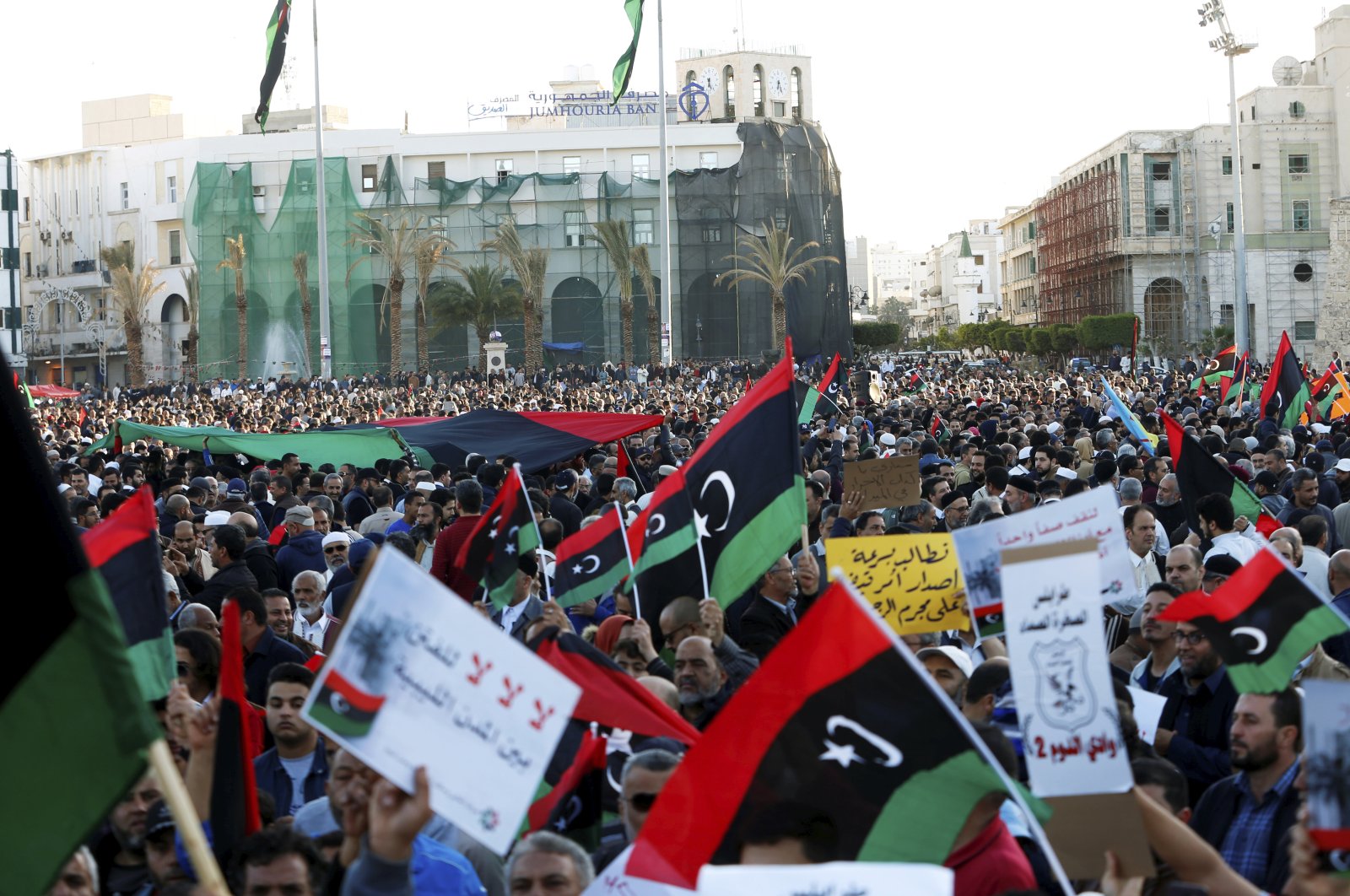The Libyan Diaspora

Reuters
Por Nada El Majri
Diasporas aren't a challenge from the modern day. Historically, the word came from the Greek verb 'to scatter', but was used in the context to describe a people of a dominant state that emigrated to a conquered land with the purpose of colonization. The earliest example was from the exile of the Messenians that lasted a century long, who were under Spartan rule. However, the term has come to refer to a scattered population who have immigrated to other states and who are living away from their home country. Hundreds of Middle Eastern and African diasporas can now be seen across the globe, consequently from the wars, the troubles and the strifes afflicting the region.
After the 2011 revolution ousted the rule of Muammar El-Gaddafi, which led to the start of the Civil War in late 2013, numerous Libyan families left the country to Jordan, Egypt, and the more financially able, to Europe or the States. Many of these families lost sons, brothers, fathers and uncles to the Revolution and the Civil War, and with enough grief and loss on their shoulders, they decided they couldn't bear more and packed up and left.
Living in a diaspora means that your family and friends are scattered across the globe, with the only opportunities of seeing each other are once or twice a year. In my own family, I have 4 uncles, each of them in different cities: Seattle, Dubai, Dhahran and Amman. I have cousins in Paris, London, Manchester, Istanbul, New York City, Boston, Miami, Izmir, and the list goes on. My father resides in Benghazi still, while my mother and I are in Lisbon. If that's not scattered, I don't know what is.
Living in a diaspora also means not being able to celebrate cultural and religious holidays with our loved ones, which, for my mother, is especially difficult. When we lived in Libya, our family and friends would join at my grandmother's house every Friday for lunch and afternoon tea, where we'd indulge our appetites with my grandmother's delicious food and discuss the politics of our country. Eid, Ramadan and Maylood celebrations were taken very seriously, to the point where we'd have fireworks and firecrackers blowing in my grandmother's back garden during Maylood. Now, living in Lisbon, with about a total of fifteen Libyan families, which of whom we only have close connections with two, these celebrations feel dull in comparison to the ones in Libya.
Living in a diaspora comes with the long distance phone calls every day to the family, when my mother often forgets that she doesn't have to shout so loudly down the line for the other side to hear her clearly. It comes with the cards sent each year from your uncles and aunts, wishing you a happy birthday, or a congratulations for graduating high school. It comes with the promises from family members that this will be the year that you'll finally reunite - only most times it takes two or three before the big event.
The current Civil War has completely ripped apart families, as well as resulted in a massive brain drain from the country, where accomplished and highly educated professors, doctors, engineers, lawyers and professionals have left the country to seek better work and better economic conditions, leaving the country stripped of its social assets. As well as this, Libya is now confronted with a prolonged war, an international war criminal, also known aa General Khalifa Hifter, centralizing power and ruling with an iron fist, and most recently, the infamous coronavirus.
Dealing with all these things at once has left Libya completely depleted of its resources, and with a nationwide pandemic on the streets, the international concern for the nation has significantly increased. So far, there have been 61 confirmed cases, 48 negative results, 18 recoveries and 3 deaths, whilst simultaneously, hundreds die everyday on the battlefields. Libyan healthcare services and hospitals are at an all time low, with doctors scrambling to get whatever equipment they can to perform tests, and treat patients. As a result of the civil war, chaos has prevailed the country, basic civil necessities aren't met and the race for establishing power once and for all between Hifter and the UN-backed Government of National Accord takes priority.
Although General Hifter did impose a state of emergency over the country, and a curfew from 06h00 to 18h in efforts to combat the pandemic, he recently also announced a "coup d'état" against the House of Representatives; the unicameral parliament of Libya, led by Aguila Saleh; in an attempt to overthrow his rule and take the House for himself. Thousands in the east of the country broke the 'stay-at-home-ban' to go out onto the streets in support of his striking move to take down Aguila Saleh, completely contradicting the state of emergency and risking catching and spreading the virus.
The current situation remains bleak and without any promising solutions, for nothing can be achieved regarding nation building or preventing mass contagion, while thousands of professional and educated Libyans are sitting on the sidelines in foreign countries because of the lack of justice, order and the presence of General Hifter in Libya's leadership.